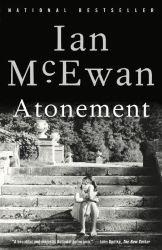
"Atonement" is the story of thirteen year old Briony and her misunderstanding of the world. It begins in the Tallis household in 1935. Obsessed with fantasy and books, she sees sinister motivations in the blossoming romance between her sister and the son of the family's house cleaner. When something terrible happens, Briony makes a mistake that will change the lives of everyone around her.
The characters in this story are all well developed, but Briony is the stand out in this regard. Her motivations straddle the line between clearly defined and mysterious. She has a clearly defined character, dramatic, self centered, and eager to please. Cecilia and Robbie are less defined, but still sympatheic and interesting. I found Robbie slightly unpleasant in the second half of the book, but it was understandable considering the circumstances.
The plot cannot be properly discussed without getting into spoilers. However, it unfolds in a clear manner. All the plot points are set up before they happen, and given proper foreshadowing. At the end, there is a plot twist. Since I highly recommend this book, I will not be spoiling the twist. However, I will say that it makes everything else that happened in the book unclear (in the best possible way).
This book contains a depiction of rape, extreme violence, and rather gruesome hospital scenes. If any of these subjects upset you, I would not recommend this book. If you are able to handle these topics, and you appricate books that focus on pyschology and character exploration, I would definitely recommend this book.
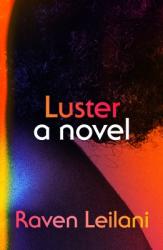
If it weren’t so gorgeously written, it’d be too wincingly real to read. I felt deeply connected to Edie in all her messiness and compulsive curiosity. Leilani’s characters are all their own: weird, self-possessed, sort of perverse, clearly loved into being.
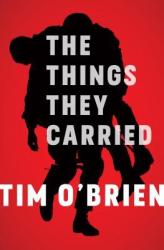
The Things They Carried by Tim O'Brian is a pretty good book about the Vietnam war. The book jumps around a lot with the characters in the war, after the war, and before the war. While it could be a little confusing at times, it was still an entertaining book. If you like reading books about Vietnam, but that also go in depth on the character, this would be a great book to read. Overall, I'd recommend this book!

The Things They Carried by Tim O’Brien horrifically recalls Tim’s time during war, in what he calls “A true war story that isn't real”. This book recreates the experiences O’Brien went through during wartime, and is written in a very grotesque manner. The story jumps around from timeline to timeline, in a way that a lot of the time you aren't sure what perspective you’re reading from. While written very well, O’Brien has a habit of making every character seem like a horrific person and puts himself on kind of a metaphorical pedestal, in what seems to be an attempt to reconcile with the guilt he faced from the atrocities committed by him and his platoon. I would definitely recommend this book to others, despite its faults, but I believe the most important thing to know going into this book is that the events described are so grotesque they seem like made up fantasies or true stories that have been modified to seem worse than they actually are, which is part of O’Briens intention of telling the story the way he remembers it happening, not the way that it actually happened.
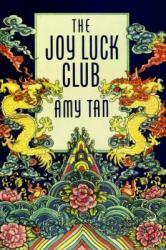
This book expresses the powerful spirits of four Chinese American mothers and daughters. The four mothers formed the Joy Luck Club after creating a strong bond with one another over mahjong after all four moved from China to San Francisco. Each mother holds her own unique struggle while living in China and while raising their "Americanized" children. As the daughters grow they realize that they shouldn't have rejected their Chinese heritage when they were young. Their mothers also wonder if they raised their daughters the right or wrong way because they were able to gift them with the independent spirit of an American, but may have disconnected them from their Chinese culture. While the book describes the lives of each mother and daughter, the plot mainly focuses on Jing-mei (June) Woo who, after her
mother passes away, travels to China to reconnect with the twin daughters her mother was forced to leave in China. Though this story follows the tales of Chinese women, I believe that anyone can find a connection to the struggles and conflicts these women faced.
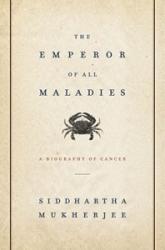
The Emperor of all Maladies is an informative and gripping history of cancer. Starting with the first recorded cases in ancient times and the remedies used by ancient doctors and progressing to the medical breakthroughs of chemotherapy and radiation, the book provides a wealth of information in a riveting tale. Dr. Siddhartha Mukherjee tells the stories of cancer’s most prominent adversaries like Dr. Sidney Farber as they work to develop life-saving treatments and procedures. The book is quite lengthy but kept me engaged throughout while teaching me about cancer history and treatment in a form that feels more like a novel than a textbook. If you want to learn more about one of the most prolific diseases in human history while viewing history through the lens of cancer researchers, The Emperor of all Maladies is perfect for you!
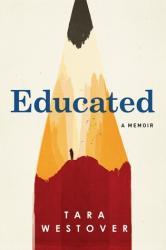
Growing up on the prairie in the past meant you were mostly isolated from the rest of society for better or worse. In the 1990s growing up in isolation in the U.S was very rare. Most people lived in cities, or suburbs, or small farming communities. Tara Westover was part of this abnormality. She grew up in rural Idaho and was homeschooled and rarely spent much time without her family. Which causes her to believe almost everything her parents and,siblings believed but when she began college she learned a lot more about the world than what she ever knew before.
I don’t typically pick up a memoir but this one was very highly recommended so I decided to give it a read. I thought the beginning was a bit slow but once you get through some of the background it becomes important in later portions of the book. I thought the book had a really good message and very unique perspective. It made me think a lot about how the school system could be improved and how outdated some of the typical school experiences are. I would recommend this book to teachers, school administrators, parents and students since they are so involved in education. I think it would be a good book to read at school and discuss as well.
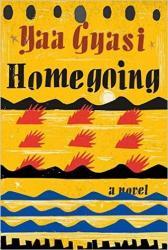
Homegoing by Yaa Gyasi follows two bloodlines, from half sisters in Ghana. Each chapter is about one descendant, switching between families somthat two chapters in a row are one generation. The book is well written and includes details that tie well into real life history or beliefs, and each chapter is in fact written in correlation with a major historical event. Through these tie-ins, the book is able to remain exciting, and each chapter could be read as a standalone short story. Each character has an important story, and is revisited in following chapters from their bloodline, either from memory or real life interactions between their children or grandchildren. In addition to the basic storytelling and history included in the book, there is also an aspect of mysticism, and values/traditions that are native to African culture, making it a solid read for increasing knowledge or understanding of Ghanan culture. For me, there are moments in the book that seem unnecessary to the general plot and sometimes vulgar, but they end up being essential in the consistency of the way the story is told. Readers are able to attach themselves to each character, story arc, anddetail, then follow them throughout the series of stories.
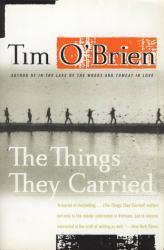
The Things They Carried follows through the perspective of a soldier within the 23rd Infantry Division. Enlisted during the Vietnam War, the book covers over the soldier's, as well as the platoons experiences throughout. The Things They Carried is a collection of stories that correlate to one another, bringing an ultimate immersion to those that are interested of any war, or historical context.
The Things They Carried is a book that has a deeper insight within the emotional, mental, and physical state of the soldiers that went through the Vietnam War. Having a darker and more serious tone than other novels, it is one that stands out and deserves recognition.
Reviewer Grade: 11
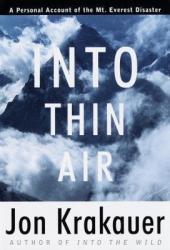
Into Thin Air is a narrative story of the author and climber, Jon Krakauer.
He establishes that ever since he was a kid, climbing Mt. Everest was his dream. He later accomplishes his ambition down the line, but with more consequences than anything rewarding.
Into Thin Air uses a consistent tone of language to identify whether the situation represents relief or tension. This gathers more intensity for those who are interested in thrillers and adventurous stories. The narrative offers a variety of twists and turns throughout the plot in order to continue the use of curiosity and unpredictability of the end. The story is very interesting, and builds upon every single detail, from the start until the end of the book.
Reviewer Grade: 11
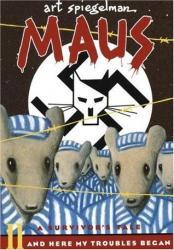
Maus II, the sequel/continuation to Maus, continues the story of Vladek Spiegelman told by his son in the form of a comic book. This book is amazing because, just like the first, it uses an animal metaphor to easily show the reader who is who in the story. Maus II takes a darker turn because Vladek is now in the depths of Aushwitz. I love these books and their creative outlook on the War and the Holocaust. No other historical book has made me this intrigued and want to continue reading.
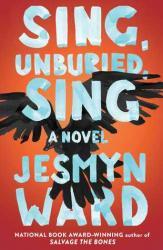
This book is a mix of old folklore and spirituality, racism, social stereotypes, and empathy. It revolves around a family who face racism from the white grandfather of black children. The main characters are the mother, the son, and the baby daughter, who relies more on her brother than her own mom. Her mother spends more time doing drugs than raising her kids, so the grandparents have generally brought them up. Their father, a white drug dealer, is in prison, and the book follows the family’s road trip to go and pick him up. The novel switches between a modern setting, and the prison but from the 1940s, when the black grandfather was in jail. The story analyzes the reasons behind a broken family, and brings to light the continued racism in the southern USA. However, the spirituality plays a role because another character who joins the road trip is the mother’s dead brother, who appears as a ghost and brings up the idea of family. I enjoyed this book very much because of its complexity. The book can be a slow read, as all the scenery and characters are continually described in precise detail, but the author leaves no point unexplained. The meanings behind the plot are subtle, and the supernatural aspect is a good point of interest to tie together the past and the present. I loved the honesty behind the author’s writing, and I enjoyed the beautiful writing style. I would highly recommend this book, and would give it four out of five stars.

Richard's cousin, Malley, has always been rebellious. However, this time Richard is really worried about her. Malley ran off with some guy that she met online and the cops can't find her. Richard knows that he can find her so he embarkes on an adventure along with Skink, a moderately sane one-eyed wandering vigilante. Skink No Surrender is awesome. Complete with daunting storms, poisonous snakes, giant gators, flying bullets, and a supposedly extinct woodpecker. Skink No Surrender is full of twists and turns that makes it impossible to put down. I read this book in under two days and I highly recommend it for any middle schooler or high schooler that is looking for a great adventure story.
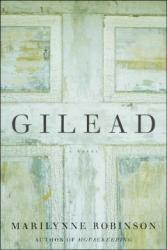
I feel the same way about this book as I do certain of my favorite foods: I absolutely love it but I can understand why someone else wouldn't. The very distinctness of this book is what makes it so lovely. If you're looking for an action-packed page-turner, keep looking. This is a book to be savored.
On the pages of Gilead, I was confronted with the transcendence, the miracle that is everyday life. The author beckoned me to see the smallest detail of existence as a thing to be cherished. I found myself deeply moved by the quiet steadiness of a man who had lived in one small, inconsequential town his whole life. He wrote no great books, and made no national waves, but he was faithful and content. What a concept! Yet he fought real battles! They were the struggles he waged in his own heart. For instance, he fought hard to love the wayward son of his best friend who had caused the family so much grief for decades, and had now returned. But in the end, he rose as a victor, and gave a blessing so moving it could change the course of a life. He had struggled for decades with loneliness. While his best friend had a household of eight kids, he had remained wifeless and childless for years after his first wife had died in childbirth. But this eventually served only as a platform to make him a stronger and more sensitive man--a man able to love more deeply because of all his heartache. All of this is described so skillfully, so carefully, that the reader cannot help but love all that the author loves. And what else is a good story for if not to capture the affections?
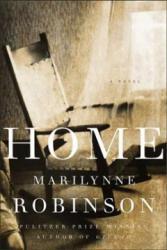
This book is not some trite, feel-good, cliche-gushing, sappy-ending kind of book. I'd say rather, Robinson portrays a little love for Flannery O'Connor in her writing. But a reader must remember that an author writes this way, not always to be dark for darkness sake (like Poe), but to sketch the world as she believes it really is. Home portrays the world as a messy place, with the messiest of all places on earth being the human heart.
Jack Boughton has wandered the world for 20 years as the wayward son of a faithful pastor but returns back home, just before his father passes away.
Jack relives much of his childhood as he returns to this home he has been gone from his whole adult life. Here he must face the remembrance of not belonging to something lovely, something he was and still is cut off from. He sees how a darkness in his heart has kept him from the light, the warmth, the fondness of family love. He has been a heartache to his parents and this he hates. But hating oneself is not the same thing as redemption; neither is regret; neither is simply making a physical trip to one’s childhood home, nor caring for your father for the last few weeks of his life. Reminiscing with your little sister and visiting all your old haunts, no, none of these things alone makes for redemption. It is much more complicated than all of that, and can only happen in the heart. Like many good books, the reader is not given a pat, 5-step plan. The path is left ambiguous. But we are only given hints. Jack whispers one of the deepest longings of every human heart, when he says to his father under his breath, “Bless me, even me also, O my father.” (From Genesis 27:34)
There is no tidy reconciliation scene between father and son, although Jack at one point tries to fake a change in his beliefs to ease his father's last days, but his father sees right through it. However, before the book ends, Jack receives a blessing from his namesake, his father’s best friend, and this is where the unexpected power to both forgive and to claim a promise, pierces through the binding darkness that Jack on his own could never have escaped.
A father who loves unconditionally a wayward son, and a life-long family friend who intercedes between a father and a son who love each other but can't understand each other, these two things are among the strongest forces on earth.
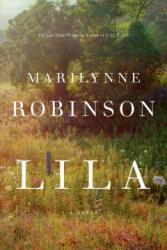
"Spread your wings over your servant, for you are a redeemer." Ruth 3:9
What happens when an old man, broken from years of suffering, looks into the face of a feral woman who has wandered into his church for shelter? In this moving story, he sees humanity in her face. He sees her loneliness and her sin-ravaged state, but he can see beyond that to a human being, near ruined, yet not beyond the hope of a redeemer. She is a person in need of compassion and comfort. He offers her a home for her world-weary frame. He marries her.
The story of Lila finds its poetic power in Robinson's unmatched ability to empathize with the human condition. Each page of this story is dripping with compassion and sympathy. The genius lies in how the very fabric of the story weaves a picture of the deepest desires of every human heart.
Lila, at her core, is a person in desperate need of protection and affection.
Here Robinson proves herself to be a master of symbolism. When a shawl was spread over the sickly, neglected, and dying toddler Lila, by a wretched woman overcome by compassion for an unloved child, this shawl and this memory become the defining features of Lila's life. And later, as a forsaken, hopeless, and forlorn grown woman, who has now lost the one person in the world who ever cared for her, Lila finds again someone spreading his dark suit jacket, the one he preaches in, over her freezing shoulders as they walk along the road. Lila says, looking back on that moment: "She thought it was nothing she had known to hope for and something she had wanted too much all the same." A covering, a home, protection. And again: "But if she had prayed in all the years of her old life, it might have been for just that, that gentleness. And if she prayed now, it was really remembering the comfort he put around her, the warmth of his body still in that coat. It was a shock to her, a need she only discovered when it was satisfied, for those few minutes." This story brings to life the theme that we often don't even know what to pray for and that mercy is so much bigger than our imagination.
Robinson is an author who truly understands how to express suffering, estrangement, loneliness, and courage in a breath-taking and lovely story of grace and redemption. She has a deep perceptiveness in the way she portrays the various motives that control the human heart and she writes with forthrightness and blazing accuracy. Read an be changed.
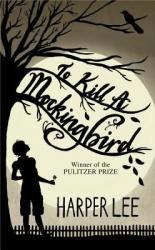
To Kill a Mockingbird by Harper Lee is an amazing story with important underlying themes. I really enjoyed this book. I read To Kill a Mockingbird on my own and then in class, which only made me appreciate the book more. The book explores controversial issues such as prejudice, racism, what it means to be a woman/lady, and growing up, which are all still relevant in today’s society. However, this is not a book for people who enjoy eventful/plot driven stories. To Kill a Mockingbird is more of a character-driven story (in my opinion). Harper Lee’s usage of symbolism, language and setting add to the enjoyment of the book. I could not recommend this book enough. To Kill a Mockingbird is a thought-provoking and classic book that everyone should read before they die.

Kathy isn’t a normal kid, and neither are any of her friends. They were all cloned, and someday, their vital organs will be harvested until they die. But for now, they will grow up in a secluded boarding school nestled in a corner of England, called Hailshem. Hailshem is idyllic: creativity is nurtured, friends are everywhere, and there are supported teachers. Kathy retells her experiences as she looks back on her life in preparation for her organ donations. And…. that’s basically it. It sounds like a really interesting concept for a book, but the author completely butchered it! His writing drags on and on, and completely bored me to death. If he had written it better, or if someone rewrites it, the book would be fascinating. But the writing style is so dreadfully dull. I warn you-- do not read this book! You will seriously regret it if you do!
Reviewer Grade: 7
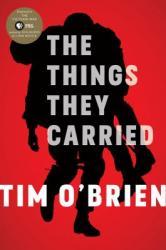
The Things They Carried is a collection of short stories, written by the protagonist (Tim O’Brien), of self reflection about his experiences during the Vietnam War. O’Brien itemizes a list of the things, both tangible and intangible, that members of his platoon have brought with them to war. The plot follows the fate of the Alpha Company members both during and after the war, as well as adding O’Brien’s personal comments on the events he transcribes.
This book humanizes war. It’s no longer one side versus another, but actual people with lives and stories beyond the war. I really enjoy the style O’Brien uses, inserting himself into the story gives the novel verisimilitude. This book is very unlike books I normally read, and I was pleasantly surprised by how much it made me think.
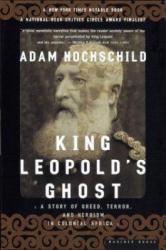
Adam Hochschild brings to light an important part of history that is largely ignored in relations to the horrors of the colonization of Africa. Hochschild follows, in detail, the formation of the Belgium colony in the Congo. His descriptions and the information he puts forth draws the readers in and highlights the travesty that King Leopold let loose on this part of Africa and its people. The details that Hochschild puts into his book reveals hidden intrigues that keep the readers engaged. And the history that Hochschild relates to the development of this colony allows readers to see the bigger picture. This book addresses key topics, like racism and slavery, that develop readers understanding of this time and the need to prevent similar situations in the future.
(Reviewer Grade: 12)


